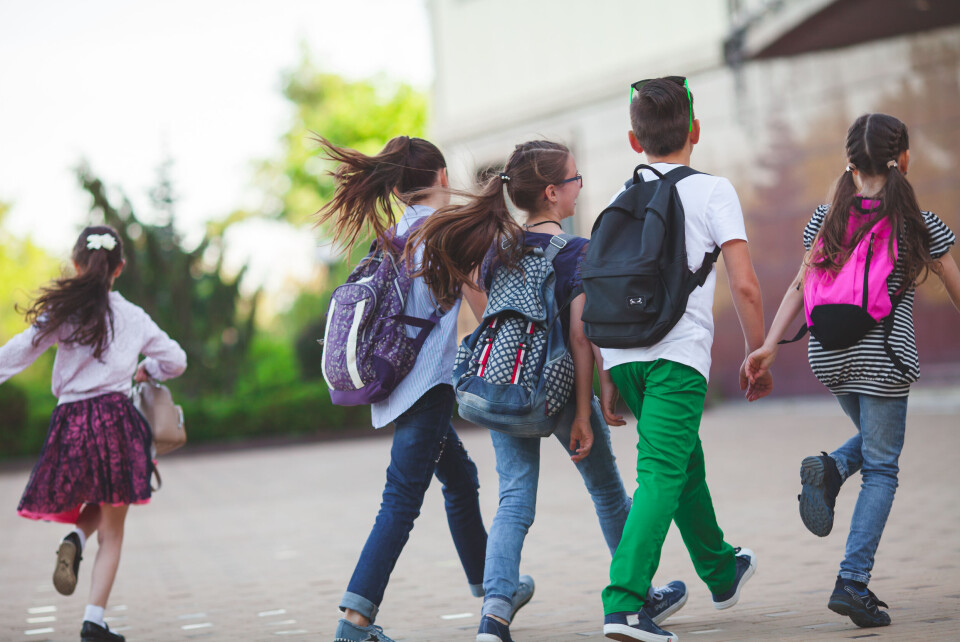La rentrée: 12 points to understand French schools
From food to bullying - some things may surprise you about the education system in France
Instead of joining a school orchestra/gym club/football team, children join external local clubs
Norenko Andrey / Shutterstock
France’s education system is extremely centralised. All curricula are drawn up by the Ministère de l’Education Nationale, which also assigns secondary teachers to schools across the country, often with scant regard for individual teachers’ wishes.
This is supported by teaching unions as a way of ensuring that talented staff are spread equally between schools.
France is divided into 30 académies, each headed up by a recteur d’académie, appointed in Paris. Primary teachers are assigned to schools by these académies. Most teachers are civil servants, recruited and paid by the state.
Here are 11 other surprising facts about the French school system:
1. School starts aged three
School is compulsory from age three when children start l’école maternelle. They stay for three years before moving up to l’école primaire.
Homeschooling is rare and regulated.
2. Teachers trained in child psychology
Teacher training has undergone massive changes in the last 30 years. Teachers were once only trained in their specialist subject but now also receive instruction in teaching techniques and child psychology.
Teachers do not have a duty of pastoral care. Although most schools do their best, it is seen as a job for social services.
3. Minimal extracurricular activity
After-school activities are limited. Instead of joining a school orchestra/gym club/football team, children join external local clubs.
4. Bullying is a crime
Bullying (le harcèlement scolaire) is a problem which the government is tackling in a variety of ways including the creation of a helpline (3020, open weekdays from 09.00 to 20.00).
In addition, new legislation was brought in 2022 to make bullying a crime, with penalties of up to 10 years in prison and fines.
5. School dinners are first rate
School lunches are high quality, often three courses and with a vegetarian option.
There is generous help with payment and most schools frown on packed lunches (or ban them), regarding them as inferior nutrition.
Parents can consult menus on noticeboards outside schools to see their home meal planning does not offer the same.
6. Boarding is subsidised
The state system includes boarding schools (l’internat) for rural pupils who live too far away to commute daily.
There are also special options for pupils who excel at sport (known as sports-études), such as a ski option in mountain areas.
Boarding fees are affordable and such schools are heavily subsidised according to family income.
Some children board monthly but most are weekly boarders.
7. Learn subjects school does not offer
Children who want to learn a subject that is not taught at their school can do so via the Centre National d’Enseignement à Distance (CNED), which offers a wide range of subjects.
Some schools will even pay the fees (which are not very high).
8. Most private schools are Catholic
97% of private schools in France are Catholic – and mainly funded (73%) by the state, resulting in very low fees compared to the US or UK. Parents pay only for the non-state extras, such as religious instruction.
Widely regarded as more disciplined, entrance into private schools can be competitive, with uncooperative children expelled quickly.
17% of primary, middle and secondary pupils go to private schools.
9. Follow a foreign curriculum
Some state schools also have European and/or international sections, staffed by foreign teachers following foreign curricula.
These sections usually only cover three or four subjects, with the remainder done by the regular state school.
The schools are free but foreign-language sections generally have affordable fees. Entrance can be competitive.
Pupils can sit exams for the Baccalauréat Français International or BFI (formerly the Option Internationale du Baccalauréat).
10. Parents’ evening queues
Parents’ evenings at collège and lycée often mean waiting in line outside subject classrooms.
Parents are allocated five to 10 minutes each, but often over-run.
11. Philosophy for all
The French are proud that philosophy is compulsory in the final year of lycée, and has been since 1808.
Pupils usually take four hours a week and philo is required to sit the Bac. It is often the first subject that starts exam season.





























